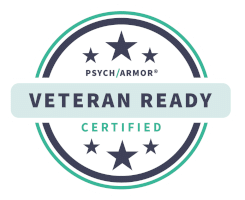Previously referred to as paranoid disorder, delusional disorder is a mental illness creating the inability to tell what is real from what is imagined. Delusional disorder symptoms usually include irrational delusional beliefs that object to normal reasoning even if proven wrong. These delusions involve real-life situations and the misinterpretation of perceptions or experiences. People with delusional disorder continue to function and live normal lives, displaying no odd or bizarre behavior. However, some people with the disorder may develop issues after becoming too wrapped up in their delusions.
Delusions come in all types. Erotomanic delusions involve a person of higher status being in love with the individual. Grandiose type creates feelings of intense power, knowledge, or fame. Jealous delusions instill thoughts that the individual’s sexual partner is unfaithful. Persecutory type involves someone close to the individual being treated in a spiteful, mean manner. Somatic delusions create the belief he or she has some physical abnormality or medical condition. These types of delusional disorder can also mix to create mixed-type delusions.
There are several symptoms that are associated with delusional disorder. Study the list below so you can identify if a loved one is suffering from a symptom of delusional disorder.
- Having a poor mood, or being angry for no obvious reason.
- Experiencing delusions. These delusions range from things that could actually happen (getting sick, being poisoned) to more unbelievable situations as well.
- Hallucinations. This is often described as seeing or hearing things that are not actually there.
Causes of delusional disorder are still being researched. Researchers are looking at various genetic and biological risk factors. Because delusional disorder occurs more frequently when other family members have the disorder, a tendency to develop the disorder might be passed on from parents. Abnormalities of areas of the brain might be involved as well. An imbalance of certain chemicals called neurotransmitters are linked to the formation of symptoms. Neurotransmitters help nerve cells send messages to each other and interference with this process can lead to the creation of delusional symptoms.
Therapy has shown help to control individuals’ symptoms, identify early signs of relapse, and develop a prevention plan. Individual psychotherapy helps the person recognize and correct the underlying delusional thoughts. Cognitive behavioral therapy helps correct thought patterns and behaviors that lead to uneasy feelings. Family therapy can help all members deal more effectively and contribute to a better treatment plan for the individual with the disorder.
Pasadena Villa’s Smoky Mountain Lodge is an adult intensive psychiatric residential treatment center for clients with serious mental illnesses. We also provide other individualized therapy programs, step-down residential programs, and less intensive mental health services, such as Community Residential Homes, Supportive Housing, Day Treatment Programs and Life Skills training. Pasadena Villa’s Outpatient Center in Raleigh, North Carolina offers partial hospitalization (PHP) and an intensive outpatient program (PHP). If you or someone you know may need mental health services, please complete our contact form or call us at 407-215-2519 for more information.
Sources:
www.webmd.com – Delusional Disorder
www.webmd.com – Delusional Disorder (page2)





